#career in counselling
Text
Want to Help People in Distress? Consider a Career in Counselling!

If you’re thinking of becoming a counsellor, but just don’t have a clue on how to go about it, then fear not! You are at the right place.
Being a practising counsellor myself, I have been through the same stage where I was interested in the thought of a career in counselling, but wasn’t sure if it was meant for me or not.
I was very passionate about helping people and encouraging them to find paths to make positive changes in their lives. With time I realised that this is something that aligns with my expectations from life. I then took a decision of pursuing it further as my career, and I am happy to say that I am continuously growing in this field.
That’s why today I want to help you find a similar clarity too.
To start off, here are a few questions that may help you understand if you are heading in the right direction or not:
Do you enjoy helping people?
Do you want to have a positive impact on people’s lives?
Do you enjoy spending time with people and helping them talk about their feelings?
If you answered ‘yes’ to all three questions, then counselling may just be your true calling. However, there is a lot to consider before you take that plunge.
Who is a Counsellor?
A counsellor is someone who helps people in need by providing them with support when they experience emotional difficulties and guides people on personal, career, lifestyle, and relationship issues.
A counsellor:
Works with individuals and groups to improve their mental health and well-being.
Helps clients define goals, plan actions and gain insights.
Develops pathways to the goal with different alternatives.
Acts as a facilitator to reach goals.
Takes care of holistic (mind and body) health.
Different Types of Counsellors
A counsellor supports and guides clients with issues, which can arise in any sphere of their lives. As a result, a counsellor can don many hats and work in many different domains. Here are the 4 most common types of counsellors.
1. School Counsellor
School counsellors work at the school level (usually as an in-house counsellor) and help students to deal with social, behavioural, personal and academic problems that arise at this crucial stage of their lives.
2. Rehabilitation Counsellor
Rehabilitation counsellors help people deal with the personal, social, and vocational effects of disabilities. They help people with both physical and emotional disabilities caused by birth defects, illness or disease, accidents, and other causes.
3. Mental Health Counsellor
Mental health counsellors address and treat mental and emotional disorders. They use therapeutic techniques to deal with issues such as depression, anxiety, addiction, suicidal impulses, stress, trauma, low self-esteem, grief, etc.
4. Career Counsellor
Career counsellors (like me) help high school students, college students and working professionals to find direction in their career and resolve career-related issues. They help people to know and understand themselves to make career, educational, and life decisions.
How to Become a Counsellor in India
Now that you are clearer on what counselling actually is, let’s get to the main point: how do you become one?
Step 1: Opt for any Stream with Psychology in Class 12th
You can hail from any stream in class 12th, however, you should keep Psychology in your list of subjects (not mandatory). ThePCB streammay also give you some advantage when dealing with the physiological and neurological aspects of Psychology.
Step 2: Pursue B.A/B.Sc in Psychology or Applied Psychology for 3 years
The next step in your journey is to take up Psychology for your undergraduation.
Knowledge of areas like general psychology, abnormal psychology, counselling psychology, personality psychology and statistics is useful for a career in counselling. You should also aim to do as many internships in the domain of counselling to get hands-on experience while witnessing the daily job roles of a counsellor.
It will additionally demonstrate dedication to the profession and potentially put you in contact with professionals who can help you in gaining skills.
Some leading colleges to pursue B.A /B.Sc. in Psychology/Applied psychology in India:
Delhi University, New Delhi
Jamia Milia Islamia, New Delhi
Ambedkar University, New Delhi
Panjab University, Chandigarh
Banaras Hindu University, Varanasi
Aligarh Muslim University, Aligarh
Fergusson College, Pune
Christ University, Bangalore
Step 3: Pursue M.A/M.Sc in Counselling Psychology/Psychology/Applied Psychology for 2 years
To gain the practical knowledge of your field, and to specialise in counselling, you’ll need a master’s degree. You will study about counselling theories, social and cultural diversity issues in counselling, career development and counselling, research methods and much more. You’ll also complete internships and dissertation work to meet the criteria to receive the degree.
Admission to the various colleges will be through entrance exams or your marks in graduation along with the interview. Many institutes let you take up psychology for your master’s even if you have not studied it at the undergraduate level.
Some leading colleges to pursue M.A / M.Sc. in Psychology/Counselling Psychology in India:
Delhi University, New Delhi
Tata Institute of Social Sciences, Mumbai
Ambedkar University, New Delhi
Jamia Milia Islamia, New Delhi
Christ University, Bengaluru
Ashoka University, Sonepat
Panjab University, Chandigarh
Banaras Hindu University, Varanasi
Aligarh Muslim University, Aligarh
Fergusson College, Pune
4. Pursue a PG Diploma in Guidance and Counselling for 1 year (Optional Step)
An additional step you can take to actually double down on your counselling skills is to do a 1-year diploma in guidance and counselling. Numerous institutes offer this course, to help you hone your counselling skills and gain practical knowledge and certification in counselling.
Such diploma courses are particularly relevant for people who do not hold a master’s in psychology, yet want to build their career in counselling. Try to ensure that the course you pursue is recognised by the Rehabilitation Council of India (RCI).
A few institutes offering PG Diploma in Guidance and Counselling include:
Delhi University, Delhi
Jamia Milia Islamia, New Delhi
National Council of Educational Research and Training (NCERT), New Delhi
National Institute of Public Cooperation and Child Development, New Delhi
CVM Institute of Human Resource Development, Gujarat
Maharshi Dayanand University, Rohtak
SGT University, Gurgaon
Note –We are discussing the most recommended path to become a counsellor. You may choose not to go this way. For example, many people alternatively pursue a Master’s in Social Work to enter the field of counselling (esp. by following it up with a PG diploma in counselling).
However, at least one degree in Psychology is highly recommended, since it helps you understand the intricacies of the human mind, and enables you to better face the challenges of the field.
How to Become a Career Counsellor in India
Career counselling is something other than simply settling on a major and what work you need to get after one graduates. Since career keeps developing over one’s lifetime, career counselling too is a multi-step, deep-rooted process, helping people make career and life choices.
The objective of career counselling is not just to enable one to settle on the choices they have to make presently, but to give them the information and abilities to settle on future career and life choices as well.
To start practising as a career counsellor, you’ll need to follow the same pathway as I mentioned above, and get as much practical exposure to career counselling as possible, through relevant internships. Additionally, you can get certification courses in career counselling to enhance your skills, such as the International Certified Career Coach (ICCC) programby Mindler and Career Development Alliance (CDA).
Scope of Counselling in India
Gone are those days when people used to approach their elders for guidance in each and every phase of life. Due to changes in our lifestyle, society and families, individuals are increasingly facing the need to get guidance and support at different phases in their lives. As a result, the scope of counselling in India is also increasing exponentially.
After completing your post-graduation, a few of the areas you can work in include:
Schools, colleges, and other educational institutes
Psychological counselling centres
Marriage and relationship counselling agencies
Organisations and workplaces
Summing Up
In addition to the basic degree requirements, you’ll also need to possess certain personal qualities such as empathy, interpersonal skills, patience, resilience, good listening and communication skills, and above all, immense passion to do good for others.
So if you have decided that you want to build your career in this field, step forward and be the person people can turn to in times of trouble. All the best!
Need career counselling after 10th then connect with Mindler.
0 notes
Text

#fnaf fandom#fnaf#fnaf movie#steve raglan#william afton#fnaf afton#career counselling#fnaf au#roleplay#character description#afton family
161 notes
·
View notes
Text
Many career/hobby options for man who speaks with hands...
Last week @jessieren did a post for Fidget Friday noting of Evans that, "watching him speak with his hands is like a lesson in semaphore… but with more movement."
It led to some speculation as to what else Evans might do with this skillset...
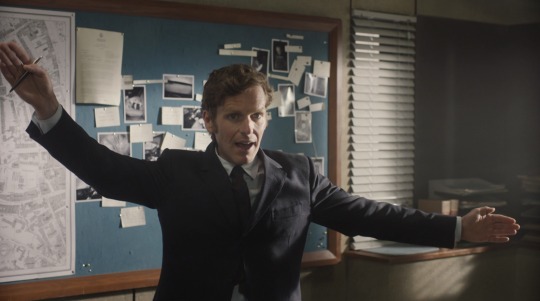
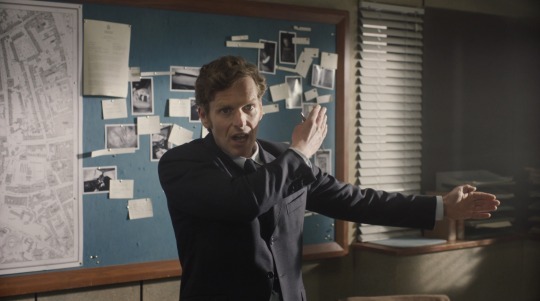
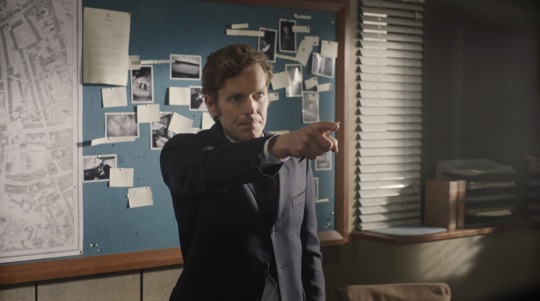
Other career/hobby options for Shaun Evans* :
Semaphore signalman
British Sign Language interpreter
Professional Italian person
Inventor of the Body Language Workout
Mime (please god no)
Charades enthusiast
Traffic cop
American football referee
Guy who lands planes on an aircraft carrier
Human hummingbird
Surely there are more...
*options suggested last week, with a few additions
#itv endeavour#endeavour morse#shaun evans#fidget friday#feral fidget friday#career counseling edition
43 notes
·
View notes
Text
counseling 101: the background.
hi everybody! my name is riley, and i'm a substance use counselor. i've worked in both inpatient and outpatient, i've been in this field since i was 19 and have been professionally working for 2 years. i'm currently in grad school for clinical social work, pursuing my lsw and my clinical licensure (lcsw). i wanted to write a guide on what it "means" to be a counselor! i will be discussing the specifics of a substance use counselor in another post. (it will be linked below.)
disclaimer:
do not take this as professional advice for all counselors, therapists, psychologists, or social workers. this is my background, my information, my experiences, and my specific expertise. this will include the basics of schooling, training, certifications, frequently asked questions, and things you might not realize, as it all pertains to me! what works for my patients and i may not work for you, so be mindful this is not a "my way is correct and your therapist is wrong," as i believe in the pct model of meeting everybody where they're at.
even counselors at my exact experience level and education level may do things differently than me, and that's perfectly fine! i just wanted to write this to give some insight if you're interested in writing a character who is a therapist, or who goes to therapy. or if you're just interested in general! i could give reminders upon reminders but i just need to say that this is all my thoughts and path in life! this is not the end all, be all. and with that, let's get started. (if you have further questions or need something clarified, please feel free to reach out but just for clarification: i'm not your therapist, i'm not being paid for this, please don't trauma dump, and always remember i'm a human just like you!)
education:
your education is based a lot on your "experience" (which i'll talk about next) and i know that doesn't make sense but just stick with me! the very basics of what you need is a bachelor's in a "social work" setting. which includes, but is not limited to (because i forget): psychology, social work, sociology, criminology. these are the foundations for your specific field of work! i'll just be talking about counseling in general, or about substance use, as i am unaware of the other jobs / fields you can get with different degrees.
if you're trying to get a "good" job (livable wage) i would suggest getting a master's degree in your field of work. though, i will say, you can get lucky and survive off of your bachelor's (like i currently am!) but i would strongly, strongly encourage further education which will lead into certifications and licensure, and that will cement your place in the field and open up the job field entirely. with a bachelor's, they often want anywhere from 1-5 years of experience. with a master's, many places will take you with 0 years of experience, up to 5 years, depending on your field and what the company wants.
i currently have my bachelor's in psychology. psychology is such a broad degree that unless you're specifically going to be a clinical psychologist or gain your doctorate, i would choose another field. i didn't know i wanted substance use specifically until i was 19, which i'll speak about in experience, but if i did not choose the substance use field, i would most definitely would have had to immediately get a master's and be licensed in order to receive well paying jobs with just a psychology degree.
experience:
you don't need a master's to get a job in this field, but you do need experience (there will be places that take bachelor's with little to no experience, but will pay you next to nothing). the best thing to do is find an internship! i think the easiest way will be through your school, and when you're picking one of the aforementioned degrees, it should be an option when picking out classes - many times, universities have people that specifically work with internships.
when i was getting my bachelor's degree, it was my first semester and i was 19 when i was offered to interview for an internship through my school. i got accepted on the spot and was apart of it even after i got my "credit" for the semester and continued for two years! i worked in houseless shelters in my county and was running daily men and women's groups, 2:1 sessions (2 counselors to 1 resident), debrief sessions with the other interns, and supplying a resource booth for the residents.
without this internship, i truly and wholeheartedly believe i would not have gotten any job in this field. it's a dog-eat-dog out there in the realm of psychology (which includes all those fields above) and i truly got lucky to get my start this way. if you don't have the time, motivation, or money to gain a master's, i would highly suggest getting involved in internships as soon as possible in order to get those years of experience!
certifications:
this has a wide range of things! i can only speak to what i've received, and what i know about. this also includes specific training to the sud field, but i won't go in depth about it until the next post i do! the certification i will always need is my cpr. i know that sounds silly, but working with people, in general, i feel like everybody that is able to should receive their cpr certificate!
now, with a bachelor's, they're not really expecting you to have anything else. but! you can. i currently have my milieu certification. which sounds fancy but it just means i'm certified in "psychotherapy in which the patient's social environment is controlled or manipulated with a view to preventing self-destructive behavior." i could've explained it myself, but google does wonders and makes me sound smart! i got this through my internship. it was required and within the first two weeks, i went through trainings and seminars to receive the certificate.
another thing i can receive with only a bachelor's (that's specific to sud) is my cadc certification. it stands for certified alcohol drug counselor. in order to do this, you'll need supervision hours from a clinical / licensed or otherwise appropriate supervisor or director. once i receive upwards of 300 hours of documented supervision, i can take my cadc exam and become certified. this can also enhance what jobs are available to me because many jobs ask for this certification in place of a clinical license (some don't, but you know... some do!)
currently, i'm working on my master's and may potentially work towards my cadc along the way, but once i receive my master's i can get my caadc, which is certified advanced alcohol drug counselor. it's just more hours and an exam! not sure which path i'll take yet because grad school is killing me, but those are what's offered in my field and what i'm interested in! of course there's other certifications involved, but that's for you to decide.
licenses:
now comes the fun part. again, what license you want or go for is specific to your field. there's a ton of counseling licenses, but the main ones that are down my path are lpc (licensed professional counselor), lsw (licensed social worker), and lcsw (licensed clinical social worker). so let me explain a little bit about each of them, and what i'm personally doing!
lpc: licensed professional counselors "are trained to offer assessment, therapeutic interventions, consultation, program evaluation and follow-up services in a variety of settings including schools, hospitals, community agencies, private practices, religious centers, group homes and more. lpc's can also independently practice counseling, meaning they can establish or join a private practice and directly bill insurance companies or receive cash for counseling services." can: work independently, diagnose mental health conditions, and supervise for clinical hours. this license is primarily for direct mental health care.
lsw: licensed social workers can "render services that rely on a special knowledge of therapeutic techniques, human personalities, and social resources. this includes: helping people become socially adjusted as individuals and members of a family or community, you cannot work independently; you must work in the affiliation of an agency or social work service provider." cannot: work independently or diagnose mental health conditions.
lcsw: licensed clinical social workers "support people through various challenges by providing general counseling services, crisis intervention, mental health therapies, substance use support, and other key services. lcsw's may also supervise the work of lsw's. they may work in schools, hospitals, elderly care facilities, private practices, and even the courtroom—social workers are often called upon as witnesses in court cases. the main thing to remember is that this license gives them freedom and responsibility to make independent decisions about diagnosis and treatment plans." can: work independently, diagnose mental health conditions and supervise for clinical hours.
difference between lpc and lcsw: though both are similar in their ability to work independently, diagnose mental health conditions, and supervise for clinical hours, there is one main distinction between the two. lpc's are more patient focused and lcsw's utilize a patient's entire life. to put it, well... better, i've turned to google! lpc's "focus on helping clients with specific issues, such as mental health diagnoses, substance use, or behavioral issues. they also can specialize in different types of counseling, including substance use or marriage and family counseling." whereas lcsw's "assist their clients with finding and accessing resources that promote a client’s quality of life and may be involved in the legislative process dictating these services. social worker training usually includes counseling techniques and training, best practices, and finding resources for clients."
general overview:
so, with a bachelor's and no cadc or license, what can i do? well! i counsel<3 i speak to my patients about their substance use, i speak to them about their family, i conduct family sessions, i delve into their trauma, i utilize cbt, pct, mi, and grounding techniques. i run daily groups with my caseload, i run bi weekly groups for the entire community, and i initially assess them for proper level of care. i submit asam's, prepare treatment plans and update them weekly, and work with them on their goals while in and outside of treatment. all of this will be spoken about further in my sud counseling guide.
a day-in-the-life timeline looks like: clock in, check any updates / notes on my patients, go to treatment team with the clinical staff / case management / nursing and doctors (which pertains to the level of care my rehab is - you will not always have this, dependent on inpatient or outpatient and other factors), i run my daily group for an hour with my patients, i do group notes for them, i have my lunch, if i have that afternoon group for the whole community i run it, then i fit in any individual sessions or initial assessments that i need, i complete all progress notes for the day, and i clock out. in between, i handle patient crisis', ama's, behavioral issues, and general questions.
modalities:
what are modalities? "modalities are approaches or methods that a therapist will use to help you reach your goals. modalities fall into broad categories, such as cognitive and behavioral, somatic (body awareness), experiential (play or art therapy), and more." these vary by counselor-to-counselor. this is what works for the counselor and the patient and instead of including the quadrillions of therapy modalities, i'll just talk about the ones i use the most! (also side note that i believe most therapists, within reason, should be utilizing pct and mi but... that's a soapbox for another day). i'll be talking more about why i use - these in relation to sud - in my other post.
cognitive behavioral therapy (cbt):
i want to start this off by saying that cbt is very useful in the beginning stages of therapy! oftentimes, people utilize dbt or somatic therapy after they've "accomplished" cbt. i employ cbt due to, more often than not, patients not having a solid foundation for recovery or changing their ways. so what is cbt?
"cbt is a psycho-social intervention that aims to reduce symptoms of various mental health conditions, primarily depression and anxiety disorders. cognitive behavioral therapy is one of the most effective means of treatment for substance abuse and co-occurring mental health disorders." in a shorter sense: i use cbt in order to "change" the way somebody thinks.
things that are apart of cbt therapy (and can be incorporated in other forms of therapy) include cognitive distortions, grounding techniques, actively engaging in combatting their automatic negative thoughts (ant's), and encompassing pct and mi in order for the patient to understand why they need to change their thoughts / actions, how they can change them, and the results of changing them. this will go more in depth in my sud post!
patient centered therapy (pct):
pct isn't necessarily for everybody, as many patients may have difficulty even coming up with what their issues are or potential solutions. but by utilizing pct, counselors may be able to support a patient to an "answer" or realization without giving them the answer - i find it beneficial to voice my issues and concerns so i'm able to form my own solution even without my friends saying anything! it's very limited involvement from the counselor as far as "telling them" what's wrong and giving them "choices" to fix it.
"during person-centered therapy, a therapist acts as a compassionate facilitator, listening without judgment and acknowledging the client’s experience without shifting the conversation in another direction. the therapist is there to encourage and support the client without interrupting or interfering with their process of self-discovery, as they uncover what hurts and what is needed to repair it."
pct is really important, in my opinion, because it allows patient the autonomy to make decisions for themselves, while also giving them support. a counselor is supposed to help, not be a brick wall, so as much as the patient is allowed to freely roam through their thoughts and feelings, i've found a nice balance between pct and cbt when the patient may not have a specific answer or understanding for themselves.
motivational interviewing (mi):
"mi is a guiding style of communication, that sits between following (good listening) and directing (giving information and advice). it's designed to empower people to change by drawing out their own meaning, importance and capacity for change. mi is based on a respectful and curious way of being with people that facilitates the natural process of change and honors client autonomy."
when i speak about "guiding" a patient to a different way of thought, or to a "solution", mi is what i'm talking about. my entire approach to counseling is not to give them the answer, because many times they may know the "right" thing to do (stay away from drugs - duh, not explode in anger, not cut people off, etc.) but allowing them this space to speak freely so i can ask them questions for clarification, let them know somebody is listening to them, and building up that therapeutic relationship is the entire point for me.
mi is where the trifecta of these modalities lays. i can utilize cbt in an effort to change their mindset or offer new ideas or "reasons" why they may think / act like that, as well as incorporating pct so that they can come to the realization themselves! it's all about balance and which modality is right for that exact moment, for that patient. it also allows me to be entirely present in the conversation. i often find myself dissociating in my day-to-day life, as many people do, but by using mi, i have to listen in order to ask questions or repeat what they said back to them. it's beneficial to all!
the end:
thank you so much for reading this! i know this was just the basics, but if you want to write a character who's a therapist or who's going to one, i hope this helps beef up that background for you! again, this is specific to me and my sud field, and there's a million other certifications and licenses for general counselors.
substance use disorder counseling post. (will update when post is done).
#rpt#rpc#rph#idk what else to tag<3 KSJAHS#rp guide#character guide#career guide#*#*guide.#counseling 101.
39 notes
·
View notes
Text
cracking up because based off the trailer it looks like "steve raglan" might not be in the movie too much until some kind of Big Reveal that he's william afton and that's awesome for fnaf fans. like i cannot wait to see that reveal i'm so hyped
but all i can think about is people in the theater who don't know fnaf lore inside and out having this exact reaction
youtube
#you remember steve right? the career counseler?#oh. oh yeah#this is killing me#fnaf#fnaf movie#five nights at freddy's#william afton#matthew lillard#steve raglan#Youtube
65 notes
·
View notes
Text
even though i’m done with high school i have to go take an english exam tomorrow and attend some pointless meeting on thursday and i hate it because i was so happy to finally get rid of all those people’s faces who have made my life living hell these past 6 years but nahhh they’re really making me get up at 7 to waste my time
i mean the exam is important yeah but be serious you could’ve made us take it before school finished for us……. just like every other teacher…… idk just an idea
#rambles#the meeting thing is USELESS it’s the same thing they’ve been telling us since the beginning of the year#i’m tireddddd i don’t need counseling i know what i want to study#i don’t need you to tell me how good science careers are when i’m doing a *checks notes* humanities baccalaureate#i want to specialize in linguistics and literature and you want me to. idk. perform open heart surgery..? leave me alone
15 notes
·
View notes
Text
Maybe it's because I'm a Ravenclaw, a pedantic nerd and so on, but I find connecting with the academic side of Tumblr fascinating. Like, some of you'all are out there being doctors, teachers, engineers, astronomers... And I get to know you here with your walls down, sending stupid memes and making us laugh.
Go on, give me your "fields of expertise" if you wish! I'd love to hear what everyone's up to, even if it's stuff like videogaming or cat-collecting. Tell me what you're great at, I'd love to support you!
#psychology#communications#acting#film-making#theatre#counselling#advertisement#media#photography#videography#languages#careers#personal#jobs#what do you do#academics#academia#cats#dogs#ravenclaw#pendantic#nerd#nerds#university#teaching#bilingual
35 notes
·
View notes
Note
I actually tend to hc that all the Links are descended from another at some point.
However, what do you think about epigenetics being a viable reason for such?
You mean epigenetics being the reason they all are similar? Or that epigenetics is the reason they're all descendants of each other? I'm not sure I understand the question.
However, considering that epigenetics regards the condensed-ness (that's not a word but oh well) of the histones and the DNA wrapped around them and that most epigenetic changes are extremely reversible due to being caused by environmental stimuli (the only epigenetic changes that are permanent being CpG methylations in gene promoters, because those control cell differentiation.), I don't think epigenetics would leave a permanent mark on all Links as a whole. If Twilight Princess was Ocarina of Time's grandson or great-grandson, then that would be the only time I could see epigenetics playing a role in more than one Link. However, I think the rest of them are too far apart in the bloodline to have any real epigenetic effect on each other. Generally, epigenetic changes have been reversed after two or three generations, unless whatever stimuli that caused the original modification was persistent. (We used diabetic rats and poor/proper dieting for this study, and research on psychological epigenetics is still very new)
Although now that you mention this, I am curious to see how epigenetics would play a role in BotW/TotK's children.
I hope that answers the question!
For me I definitely hc that Skyward, Ocarina, Twilight Princess and BotW/TotK being all relatives (BotW being descended from TP literally being a foundational piece in my lore). I just don't know enough about the rest of them to decide for the rest of them.
#sunset talks biology#legend of zelda#my stuff#thanks for the ask!#if a CpG methylation somehow got applied somewhere where acytylation would typically have occurred then maybe#I know PTSD causes an epigenetic nightmare#but it remains that epigenetic modifications are quite reversible#even with their heritability#so I'm not sure any permanent changes would occur#Good job you#I had to consult my notes for this one#hmm maybe I should consider genetic counseling as a career....
6 notes
·
View notes
Text
Remember! A good worker is never overwhelmed! 😃 A good worker is doing the whelming! 😃
#By reading this you have attended a Hyperion professional career counselling and coaching session.#We will be charging $79.99 from your account.
10 notes
·
View notes
Text
hey have you guys noticed that community and camaraderie are the point
#just drank some wine with a classmate who has a similar career history to me that brought her to counseling#and it was so healing and helpful#I love to meet and relate to people#or meet and realize our lived experiences are so different that I have so much left to learn#win no matter what
8 notes
·
View notes
Text
oh today is just going to be a problem huh.
#mom texted me to explicitly say that she didnt like that i dont have a job yet (in the middle of finals seasons)#and said she would be embarrassed if i told my parents i was planning on working at a mall/not furthering my career#i applied to office places and shit like that that she would approve of but guess what!#none of them fucking got back to me!#i told her i have an interview today but she didnt care because she doesnt want me to work retail#bitch i dont want to work retail either. what is your problem#then she told me about a cousin she knows who already has a n internship#im at the end of my rope here im not going to lie.#so glad i have a counseling appointment tomorrow
5 notes
·
View notes
Text
Inspiring Your Career Path: Tips and Insights from Top Career Counselors in Toronto
Career planning can be a daunting task, but with the right guidance and resources, you can set yourself on a path to success and fulfillment. In this blog post, we will explore valuable tips and insights from experienced career counselors in Toronto, offering a comprehensive guide to help you navigate your career journey.
1. Seek Professional Guidance: Career Counselors Near Me
Finding a local career counselor can provide you with personalized advice and support tailored to your unique needs and aspirations. Career counselors near you can help assess your skills, interests, and values, guiding you towards suitable career options.
2. Utilize Career Counseling Services in Toronto
Toronto is home to many professional career counseling services that offer a range of support, from resume building to interview preparation. These services can provide you with the tools and strategies needed to succeed in a competitive job market.
3. Engage with Career Consultants in Toronto
Career consultants in Toronto can offer expert advice on job market trends, industry demands, and career development opportunities. They can help you make informed decisions about your career path and provide insights on how to advance in your chosen field.
4. Work with a Career Coach in Canada
A career coach can offer you tailored guidance and support throughout your career journey. They can help you set realistic goals, develop a career plan, and stay motivated. Career coaches in Canada are well-versed in the local job market and can provide valuable networking opportunities.
5. Focus on Career Development
Career development is a continuous process of learning and growth. Invest in yourself by seeking out professional development opportunities, such as workshops, courses, and certifications. This not only enhances your skill set but also makes you more attractive to potential employers.
6. Leverage Online Resources and Tools
In addition to in-person services, many career counseling and development resources are available online. Websites, webinars, and online courses can offer flexible and accessible ways to enhance your career planning efforts.
7. Network and Build Connections
Networking is a crucial element of career planning. Attend industry events, join professional associations, and connect with peers and mentors. Building a strong professional network can open doors to new opportunities and provide valuable support.
8. Stay Informed About Industry Trends
Keeping up with the latest trends and developments in your industry is essential. Subscribe to industry publications, follow thought leaders on social media, and participate in relevant discussions to stay informed and ahead of the curve.
9. Reflect and Reassess Regularly
Regular self-assessment and reflection are key to successful career planning. Take the time to evaluate your progress, reassess your goals, and make adjustments as needed. This ensures that you remain aligned with your personal and professional aspirations.
By utilizing these tips and leveraging the expertise of career counselors, consultants, and coaches in Toronto and beyond, you can effectively navigate your career path and achieve your professional goals. Whether you are just starting out or looking to make a career change, professional guidance can make a significant difference in your career development journey.
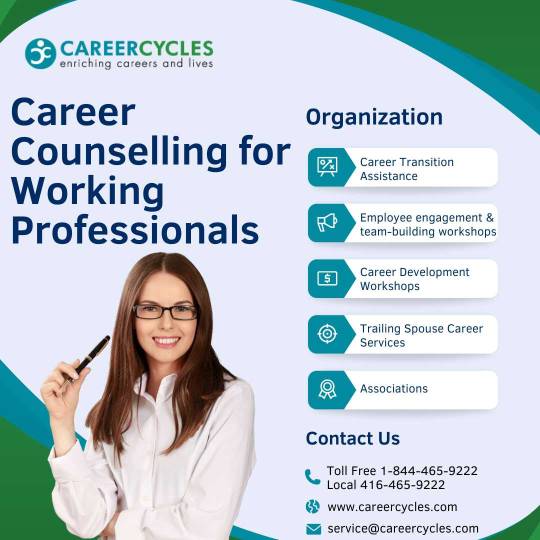
#college#studying#student life#career counselling#career transition services#career development#career coach canada
2 notes
·
View notes
Text
“We are excited to introduce you to our exceptional line of premium pens and exclusive business cards! Crafted to perfection and featuring my own distinctive signature, these cards include beneficial information; my work number, email, and office location. Visit my office to receive a complimentary pen with each card you acquire.”
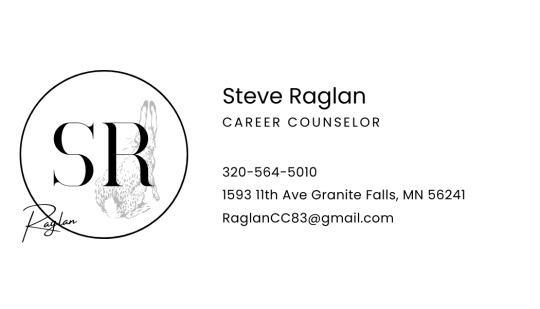

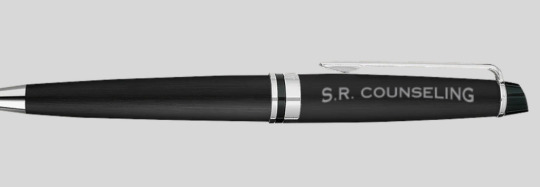
#fnaf#fnaf afton#fnaf movie#steve raglan#william afton#fnaf fandom#roleplay#career counselling#business#cards#business cards#five nights at freddys#film
37 notes
·
View notes
Text


Yumenashi-sensei's Guidance Counseling by Kasahara Masaki ch. 1
#is anyone else reading the career counseling manga#it feels like it was made to be a live action#or maybe its based on a live action drama idk the vibe but its an interesting read#yumenashi-sensei no shinroshidou#yumenashi senseis guidance counseling
10 notes
·
View notes
Text
Career this, career that, how about you carry me in your arms and drop me off some cliff or something.
#chaotic academia#chaotic thoughts#dead poets society#musings#dark academia#law student#alone and stressed#chaotic energy#student life#college stress#career stressed#how do you even know what job to get#i need some career counselling#urgently
23 notes
·
View notes
Text
People in my life: you should try therapy!!
Me: that sounds exhausting though.
#not dogs#when I went to career counseling over my job struggles I cried every session lmao#and it would basically exhaust me for a solid 12 hours#I really don’t feel like doing that.#in a more intense and non career focused way#also my immediate reaction to talking with stranger is to mask up and be like ‘I’m good :) :)’
10 notes
·
View notes